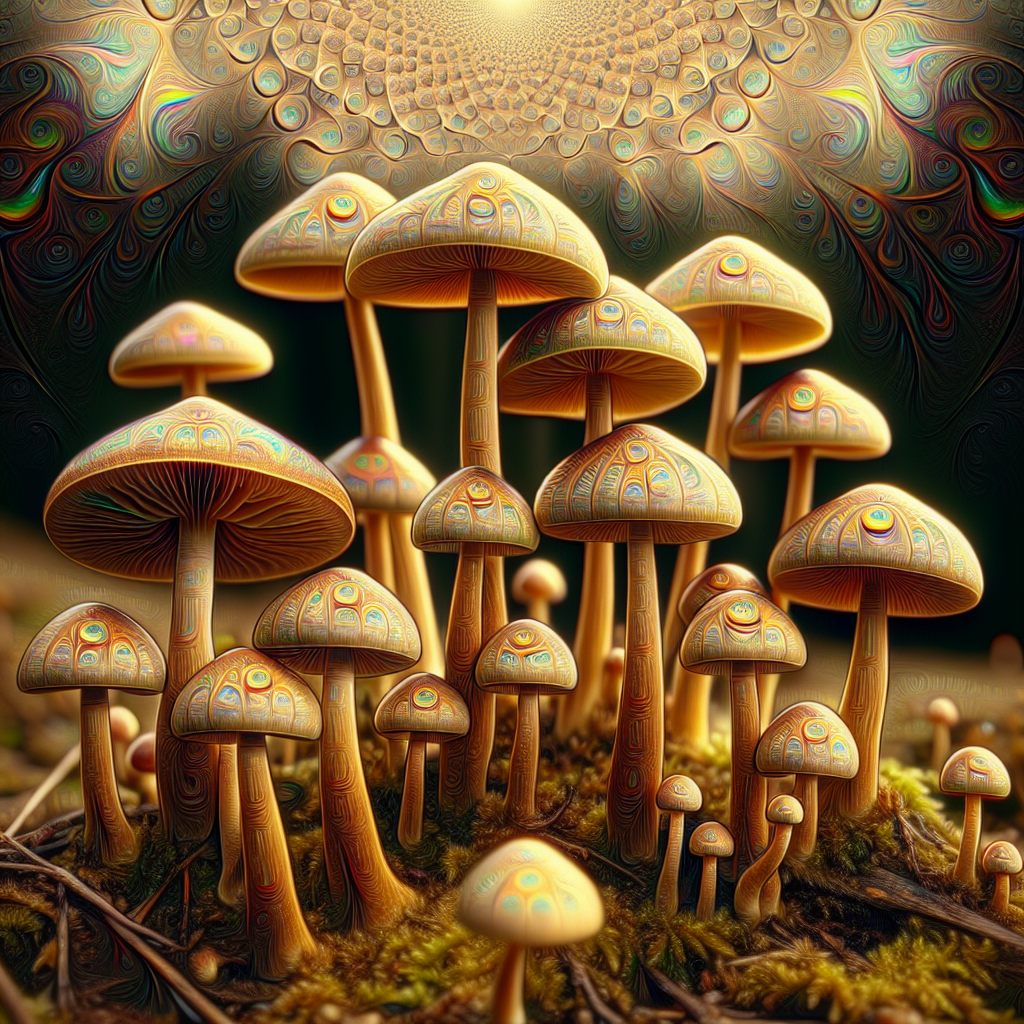Blog
What are magic mushrooms
Potential Therapeutic Benefits of Magic Mushrooms

Magic mushrooms, also known as psilocybin mushrooms, are a type of fungi that contain the psychoactive compound psilocybin. These mushrooms have been used for centuries in various cultures for their hallucinogenic properties and spiritual significance. In recent years, there has been a growing interest in the potential therapeutic benefits of magic mushrooms, particularly in the field of mental health.
One of the most well-known therapeutic uses of magic mushrooms is in the treatment of depression. Studies have shown that psilocybin, the active ingredient in magic mushrooms, can help alleviate symptoms of depression by promoting neuroplasticity and increasing the connectivity of brain regions involved in mood regulation. This has led to the development of psilocybin-assisted therapy as a novel approach to treating depression, with promising results in clinical trials.
In addition to depression, magic mushrooms have also shown potential in the treatment of anxiety disorders. Psilocybin has been found to reduce anxiety and promote feelings of well-being by disrupting the default mode network in the brain, which is responsible for self-referential thoughts and rumination. This can help individuals break free from negative thought patterns and gain a new perspective on their lives.
Another area where magic mushrooms may have therapeutic benefits is in the treatment of addiction. Psilocybin has been shown to disrupt addictive behaviors by promoting introspection and self-reflection, allowing individuals to confront their underlying issues and make positive changes in their lives. This has led to research into the use of psilocybin-assisted therapy for substance abuse disorders, with promising results in reducing cravings and promoting long-term abstinence.
Furthermore, magic mushrooms have shown promise in the treatment of post-traumatic stress disorder (PTSD). Psilocybin has been found to reduce the emotional intensity of traumatic memories and promote emotional processing, leading to a reduction in PTSD symptoms such as flashbacks and nightmares. This has sparked interest in the use of psilocybin-assisted therapy as a potential treatment for PTSD, with early studies showing promising results in improving symptoms and quality of life for individuals with the disorder.
Overall, the therapeutic potential of magic mushrooms is still being explored, but the preliminary research suggests that these fungi may hold promise in the treatment of a variety of mental health conditions. From depression and anxiety to addiction and PTSD, psilocybin-assisted therapy has shown promising results in promoting emotional healing and psychological well-being. As more research is conducted and regulations around psychedelic therapy evolve, it is likely that magic mushrooms will continue to play a significant role in the future of mental health treatment.
Legal Status and Safety Concerns Surrounding Magic Mushrooms
Magic mushrooms, also known as psilocybin mushrooms, are a type of fungi that contain the psychoactive compound psilocybin. This compound is responsible for the hallucinogenic effects that magic mushrooms are known for. While magic mushrooms have been used for centuries in various cultures for spiritual and medicinal purposes, they have also gained popularity in recent years for their recreational use.
Despite their long history of use, magic mushrooms are illegal in many countries around the world. In the United States, for example, psilocybin is classified as a Schedule I controlled substance, meaning it is considered to have a high potential for abuse and no accepted medical use. Possession, cultivation, and distribution of magic mushrooms are all illegal under federal law, although some states and cities have decriminalized or legalized their use in certain circumstances.
One of the main concerns surrounding the use of magic mushrooms is their safety. While psilocybin is generally considered to be non-toxic and non-addictive, there are still risks associated with its use. The hallucinogenic effects of magic mushrooms can be intense and unpredictable, leading to a range of potential negative outcomes, including anxiety, paranoia, and even psychosis in some cases.
In addition to the psychological risks, there are also physical risks associated with the use of magic mushrooms. These can include nausea, vomiting, increased heart rate, and in rare cases, seizures or coma. It is also possible to overdose on psilocybin, although this is rare and typically only occurs when extremely high doses are consumed.
Another safety concern with magic mushrooms is the potential for misidentification. Many species of mushrooms look similar to psilocybin-containing mushrooms but do not contain the psychoactive compound. Consuming these mushrooms can lead to poisoning and other serious health risks. For this reason, it is important for individuals who are interested in using magic mushrooms to educate themselves on how to properly identify them or to purchase them from a reputable source.
Despite the legal and safety concerns surrounding magic mushrooms, there is a growing body of research that suggests they may have therapeutic potential. Studies have shown that psilocybin can be effective in treating conditions such as depression, anxiety, and PTSD, and may also help with addiction and end-of-life anxiety. Some researchers believe that the therapeutic benefits of psilocybin may be due to its ability to induce a mystical or spiritual experience, which can lead to profound changes in perception and behavior.
In conclusion, magic mushrooms are a type of fungi that contain the psychoactive compound psilocybin. While they have a long history of use in various cultures, they are illegal in many countries and are associated with several safety concerns. Despite these concerns, there is growing evidence to suggest that psilocybin may have therapeutic potential for a range of mental health conditions. As research into the effects of magic mushrooms continues, it is important for individuals to educate themselves on the risks and benefits of their use and to approach their use with caution.
